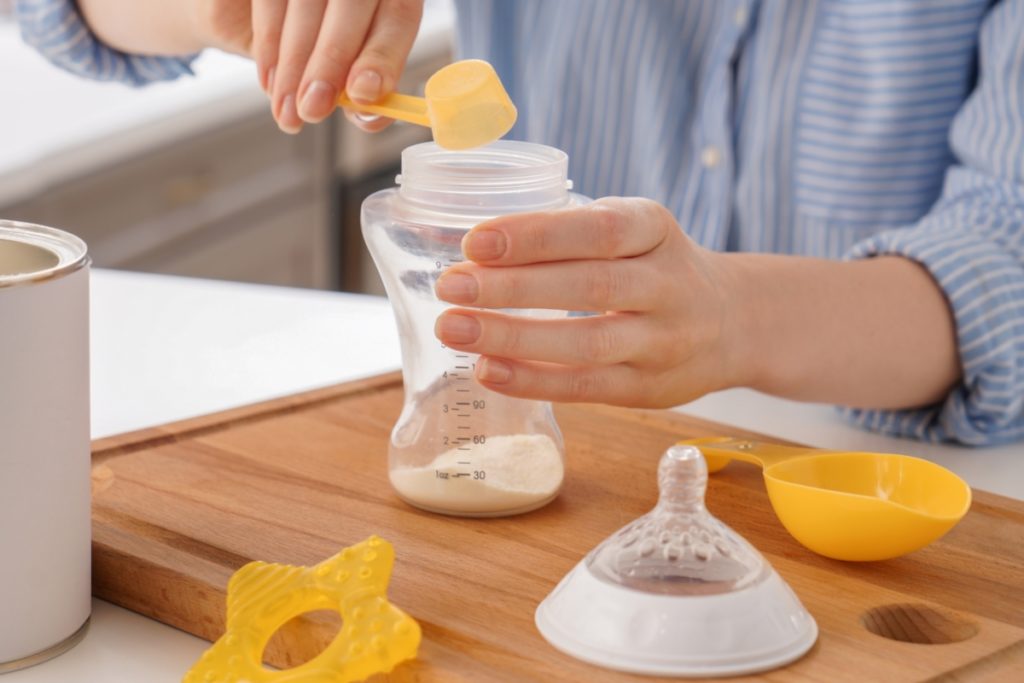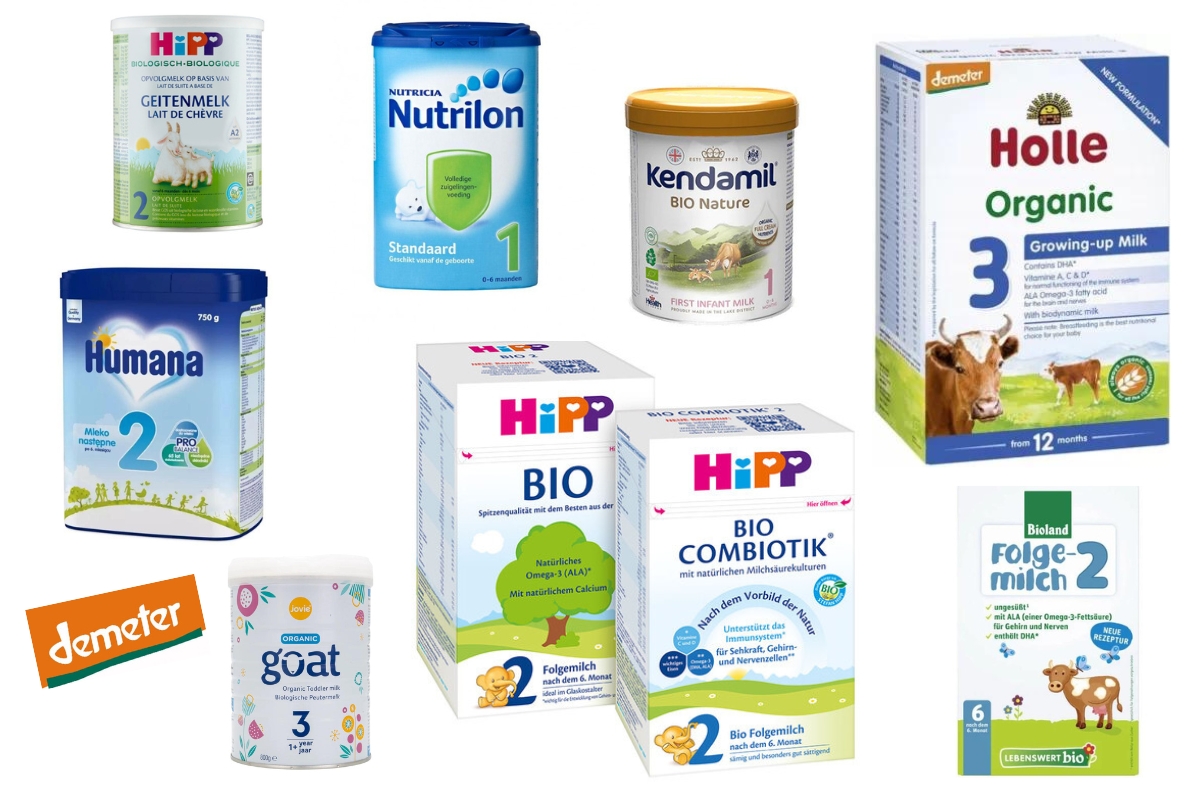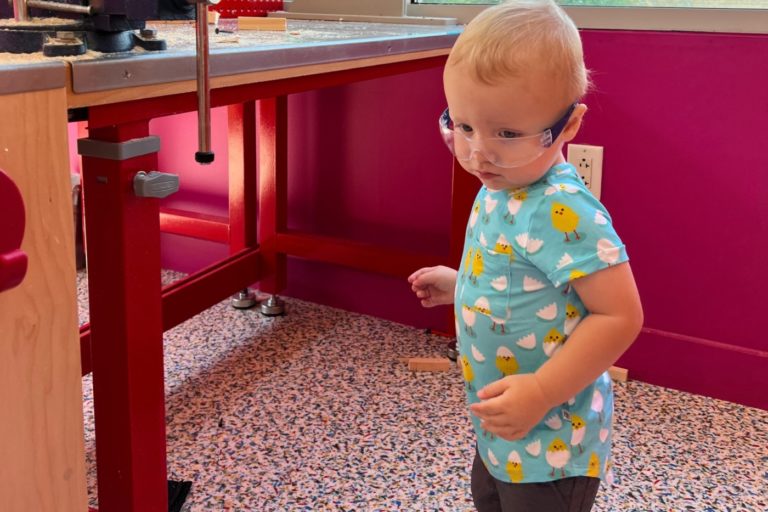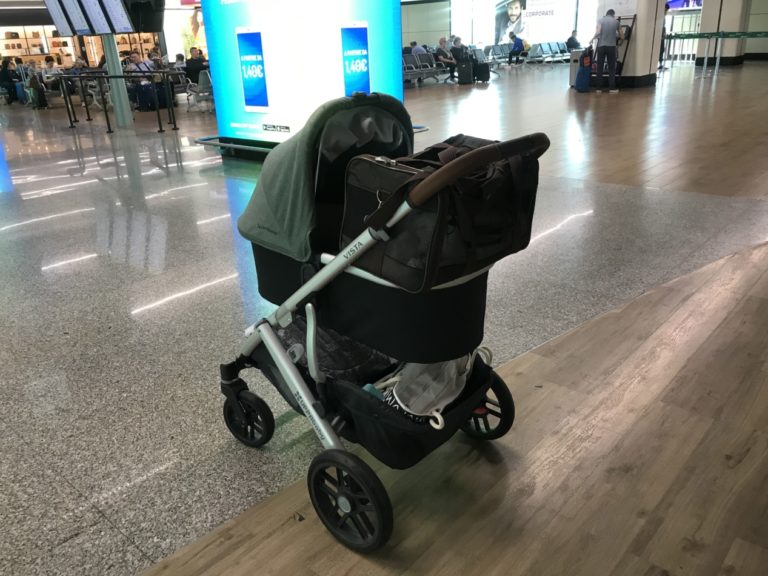What to Know About Buying European Baby Formula on Your Trips
If you’re traveling internationally for a week or two you can easily bring baby formula with you. That way you don’t need to worry about buying European baby formula abroad and having your baby adjust to it.
However, if you’re planning on staying somewhere for longer, your luggage gets lost by an airline, or you suddenly run out of formula, don’t worry!
Before you run out to buy European formula abroad and worry whether it’s good or bad for your baby, let me introduce you to the differences between American baby formula and European one.
European Baby Formula vs American Formula
European baby formulas are known for their superior ingredients and quality standards. Just like with any food items, all genetically modified foods and ingredients must be declared in Europe and banned from baby food of any kind.
While that’s important, there’s even more to it. Parents should choose a baby formula modeled after important breast milk attributes and not all baby formulas are created equally.
Both the United States and the European Union have regulations in place to ensure the safety and quality of baby formula. In the United States, the Food and Drug Administration (FDA) is responsible for regulating baby formula.
In the European Union, the European Food Safety Authority (EFSA) sets standards for the composition and labeling of baby formula, and the European Medicines Agency (EMA) is responsible for evaluating the safety and efficacy of any additives used in baby formula.
How is European Baby Formula Different?
Stages
On top of stricter regulations regarding labeling formula or baby food as “organic” in Europe, the most noticeable difference is that American formula is made based on “one fits all” while in Europe it’s sectioned into stages based on the baby’s development. That said you’ll see:
- Stage 1: from birth – it has lactose as the only carbohydrate (like breast milk) and does not contain any starch or maltodextrin,
- Stage 2: at 6 months – generally have higher levels of iron and vitamin D
- Stage 3: at 12 months – additional supplements, not necessary
- Stage 4: at 24 months – additional supplements, not necessary
Sugars
The EU does not allow European formula manufacturers to use corn syrup, glucose, fructose, rice syrup, table sugar (sucrose), or carrageenan, while American formula can be indeed stuffed with sugar.
Unlike European formulas, FDA (who regulates baby formulas in the US) doesn’t make it mandatory to ban additives like corn syrup or guar gum or other sweeteners. Even some Similac formulas have added sugary substances in it.
Protein Sources
On top of that, at least 30% of all carbs in European baby formula must come from lactose because lactose is the primary carb in breast milk. Lactose in baby formula can help improve digestion as it contains easier-to-digest proteins compared to more complex carbs.
European formulas often focus on whole milk, which contains more milk fat that has multiple benefits for cognitive development. There are even ones made with goat’s milk, which is rare to find in the United States as EU stays ahead of the US in the goat milk formula race.
Additives
European formulas are required by law to have Omega-3 DHA added to them. It’s not the case with American formulas.
Another difference between US and European formulas is that European brands don’t use gums or carrageenan to thicken their products, whereas US brands do.
Organic certificate
Most importantly… The FDA also doesn’t regulate organic certification, leaving consumers to rely on the manufacturer’s word that their product was produced without fertilizers or pesticides!!
Remember last year when many “organic” brands turned out to be quite the opposite of organic? In order to be classified as “organic” in Europe the brand will need to pass very regulations. Look for Demeter logo on the formula and you’ll know that it’s truly organic.

The Reason Why Various European Formula Brands Aren’t Approved in the US is the Stages
The reason is actually quite a silly legal matter if you investigate it – it’s about the iron. American regulations require that baby formulas contain 1 milligram of iron per serving, whereas European guidelines require just 0.2 milligrams per serving.
This is why Hipp or Holle brands cannot be approved in the US, even though they are produced according to stricter regulations.
HOWEVER, European regulations believe that iron is more needed in Stage 2 formula. This is when the iron level weans off from the mother and pregnancy and formulas in Stage 2 contain between 0.6 – 1.7 mg or iron.
Since American formulas don’t distinguish Stage 1 and Stage 2 and market all formulas for up to 12 months of age, they can’t be approved.
Ironically, and vice versa because all US formulas have iron concentrations well above the maximum allowable concentrations set by the EU for babies of that age.
Basically, if you think about it… American baby formula could contain GMOs, and sugary substances. It can claim to be organic when it’s not (because formal tests aren’t required), and be approved by the FDA as long as it contains 1 milligram of iron.
Considering that recent studies showed that the more iron-fortified formula a child consumed in infancy, the lower their arithmetic and calculating abilities were in adolescence, the iron policy is questionable.
Which One is Closest to Breast Milk?
Europe’s biggest and most popular organic baby formula brands: HiPP, Holle and Humana. All these brands are leaders in Europe’s organic baby food industry.
There are other European formula brands like Jovie, Aptamil (now available also in the US) and also including Almiron, Aptamil, Bebilon, Gallia and Nutrilon (names vary depending on the country), Kendamil, Lebenswert Bio, or Nestle NAN (also leading formula in Latin America).
HiPP formula is different depending on the country. If you buy Hipp formula in Germany it will vary slightly from one bought in the Netherlands or the UK.
HiPP Stage 1 from the Netherlands & Germany has a probiotic while UK HiPP Stage does not. The Dutch HiPP is soy-free whereas the German and UK HiPP are not.
Where to Buy Baby Formula in Europe?
All across Europe you can buy baby formula at a big supermarket. Most smaller city stores will have some, but the choices will be very limited.
You can buy baby food, including jars and meals at stores and drugstores. Note that pouches aren’t very popular in European countries unless it’s pure fruit and considered a snack. It’s extremely rare to find baby pouches containing vegetables or meat, because it’s just not common.
Most pharmacies and bigger drugstores sell formula, diapers, and other baby stuff like diaper rash creams or bottles. They will also carry more specialized formulas, such as goat milk, lactose-free, and so on.
How to Measure Scoops Correctly in Another Language
While instructions to prepare the formula will obviously be in German, Dutch, French, or another language depending on where you are, it’s not rocket science. Every formula comes with a scoop. It tells you how many scoops to dissolve in how many ml – as Europe uses the metric system and milliliters instead of ounces.
I can tell you that I actually find European (or even Latino) formulas easier to manage, because the European scoop is half the size of the American scoop. You can make smaller quantities of formula instead of making more and having to waste it. It’s especially important with smaller babies who don’t eat much in one feeding.
Is Importing European Formula Legal?
If your baby (or you, since you’re the decision maker for your baby) like European baby formula better, you can bring some back with you. Importing formulas for personal use has never been illegal and never sanctioned either, you can bring multiple cans back with you.
There’s false information spreading that importing baby formula to the US is illegal. To be clear, importing European baby formula for commercial use is not illegal, it just has to meet certain requirements.
Commercial imports of food products require a filing of “Prior Notice” to the FDA. The importer must also be registered with the FDA before their goods will be allowed into the US.
If you like it, you can also order more from reputable US sellers that legally import European baby formula:







